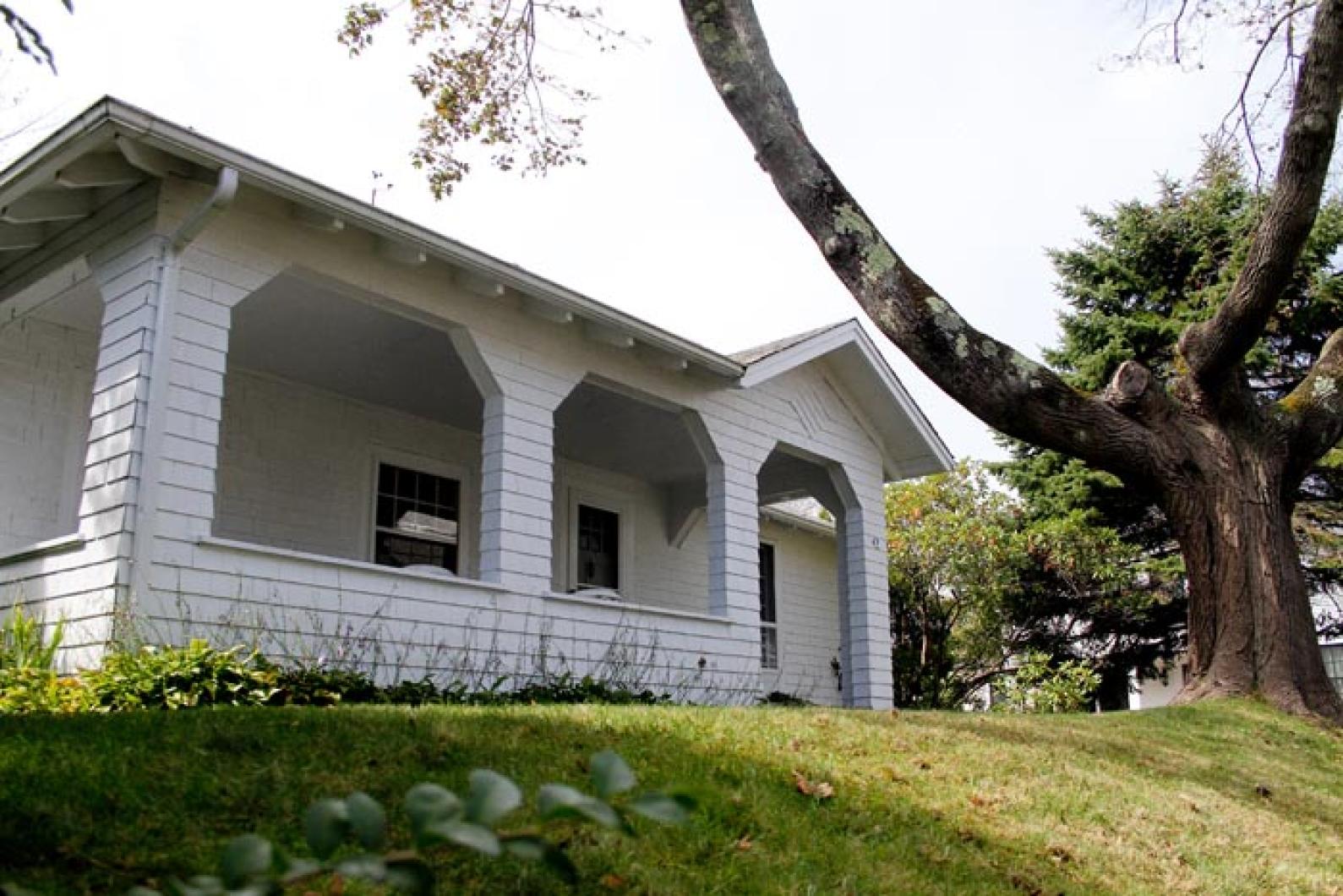A 1920s bungalow in Edgartown is slated to be torn down, the town selectmen learned this week.
Norman Rankow, a well-known contractor and owner of Colonial Reproductions, came before the selectmen at their weekly meeting on Monday to apply for a curb cut but when the board learned of the plan to demolish the Colter house on the corner of Morse and North Summer streets, they were chagrined.
“That’s unfortunate, that’s very unfortunate,” selectman Margaret Serpa said.
“Margaret, I understand your sentiments,” Mr. Rankow said.
“It’s the last bungalow in town,” responded Ms. Serpa.
“I reacted the same way, it kind of makes you sick to your stomach,” town administrator Pamela Dolby said.
“The point being is you’re not losing parking spaces, you’re just shifting them down,” Mr. Rankow said, steering the conversation back to the curb cut discussion.
Mr. Rankow said the owners of the property next door to 42 Morse street want to buy the house and guest house (which is not historic), tear them down and build a three-bay garage on the property. The property sale has not concluded yet.
Ms. Serpa said she was concerned about setting a precedent for three-bay driveways, but selectmen reluctantly approved the curb cuts.
The house sits just outside the historic district which was adopted in 1987 and is confined largely to the heart of the downtown. The entire Edgartown village was named to the National Register of Historic Places in 1984, but the designation has no restrictions or rules to protect the houses from demolition. At the time of the designation the village was considered rare and historically pure in architecture, on a par with villages like Nantucket and Marblehead with its eclectic mix of some 500 19th and 20th century wood frame federal, Greek Revival, Queen Anne, Colonial and arts and crafts style houses.
Under an Edgartown town bylaw, any house slated for demolition must be offered to affordable housing groups for moving to another location. The offer was made to the Dukes County Regional Housing Authority, but executive director David Vigneault said yesterday afternoon no one had expressed interest.
Mr. Vigneault said a letter has been sent to Edgartown building inspector Leonard Jason confirming that no one wanted the house. Mr. Jason now has the authority to issue the demolition permits, although there is no application before him yet.
Town historic district commission chairman James Cisek said yesterday while the Colter house is out of his board’s jurisdiction, the demolition could be referred to the Martha’s Vineyard Commission for review. He confirmed that the demolition of older homes has become a trend in the village, but the commission has little authority to control most of it.
“The houses on the border of the historic district are becoming very popular now with people for tear downs and there really isn’t any protection available,” Mr. Cisek said. “If we feel the house is really historically significant we can always go to the [commission] as an avenue of last resort to see if they can do something about protecting them.”
He continued: “It’s unfortunate it’s happening but until the [historic] district is expanded or there are some other bylaws that could protect historically significant houses there’s nothing we can do. Fortunately people who have done these demolitions put houses up that are in character with the district, but as far as putting something up totally not in keeping, there’s really nothing to prevent that.”
A traditional bungalow style home, the Colter house is thought to date to around 1920. The late Richard Colter bought the house in 1953 from Georgie Thomas, a midwife and nurse. Mr. Colter was born two houses down. Mr. Colter’s son, Richard Colter Jr., is the current owner. A one-bedroom cottage was built on the property more recently.
Mr. Rankow said there was almost no possibility of moving the larger house, but the cottage could be moved.
“If they were to come back to us and say we’d like to have it [the smaller house], I agree with the demolition delay bylaw purpose if it can be moved,” he said. “If [an affordable] housing [group] was to come back and say we want it, absolutely.”




Comments (1)
Comments
Comment policy »